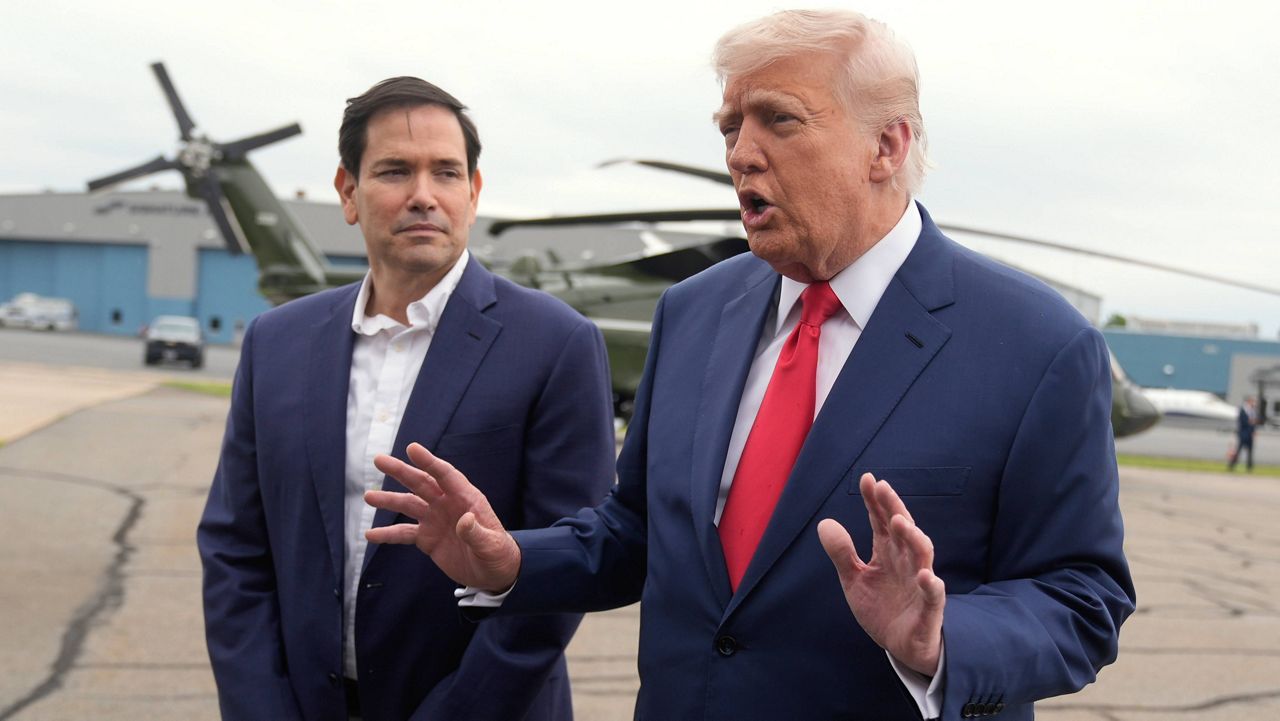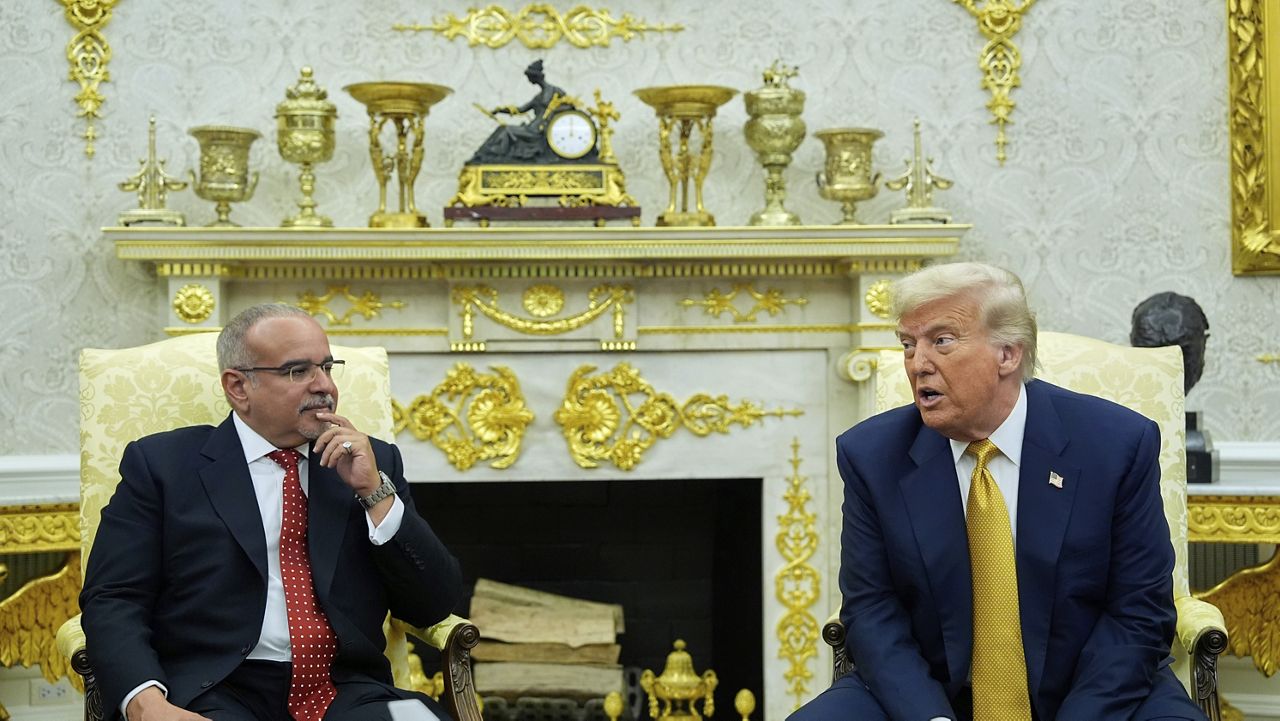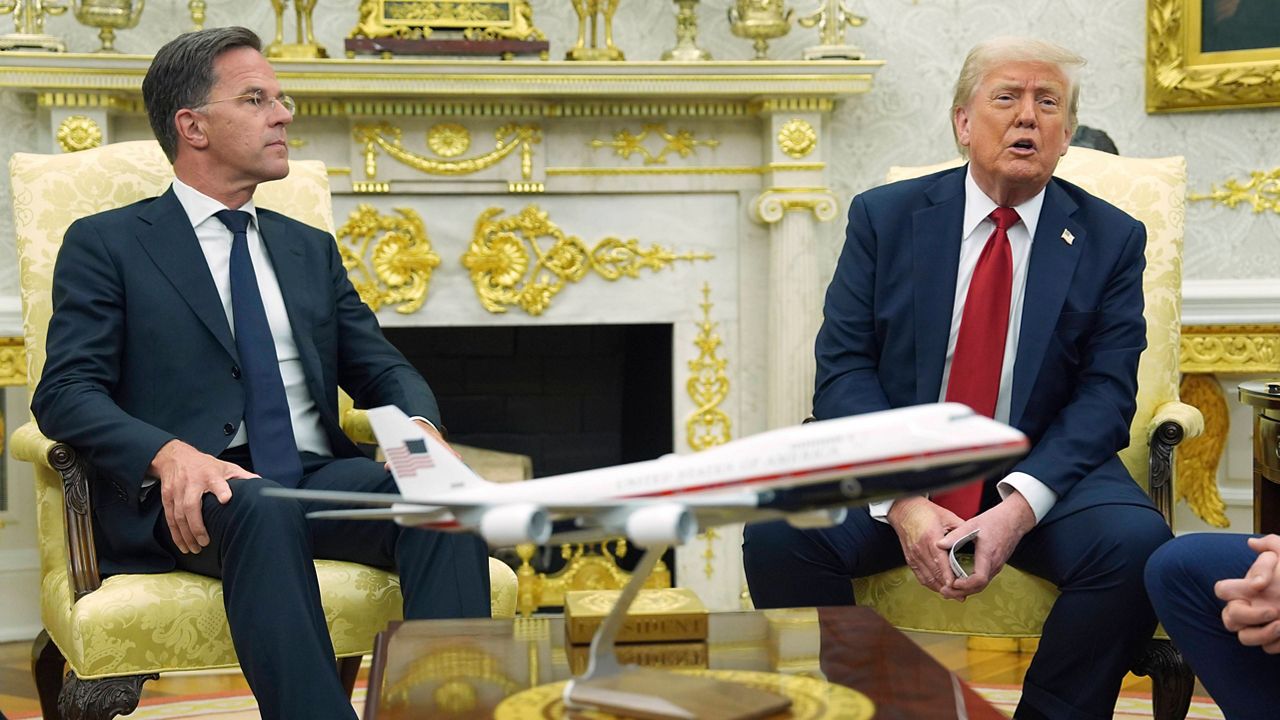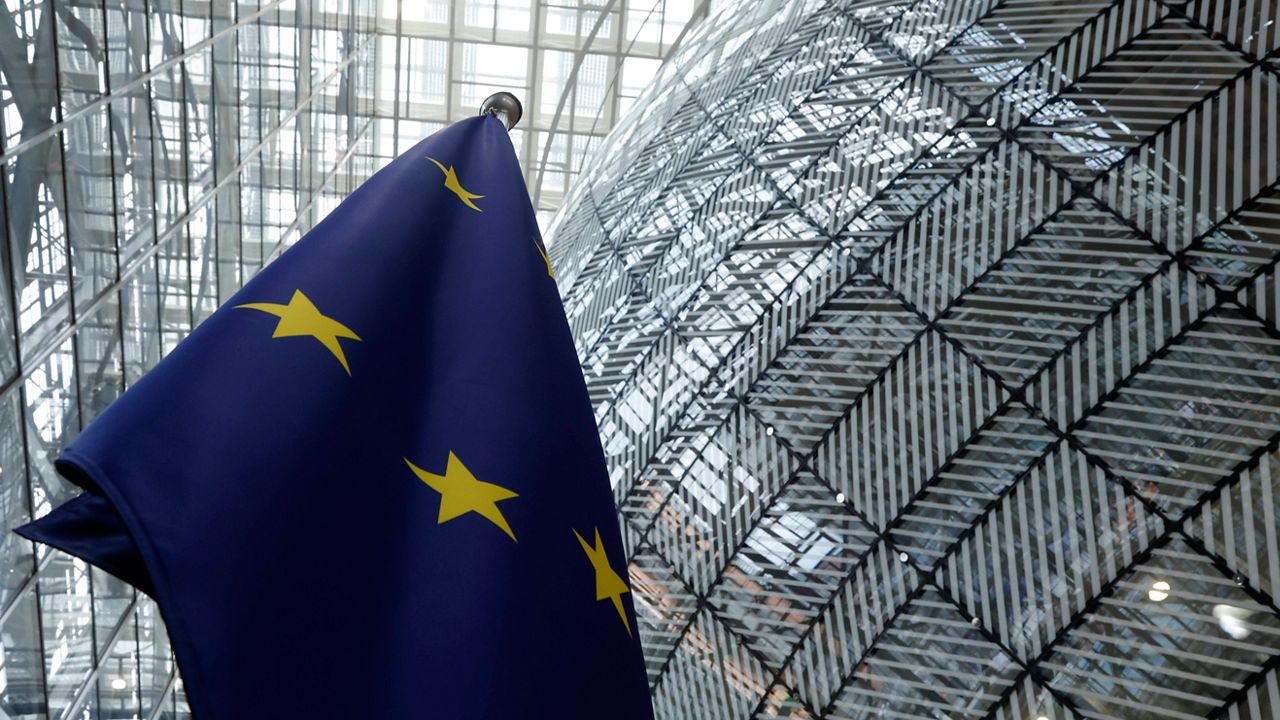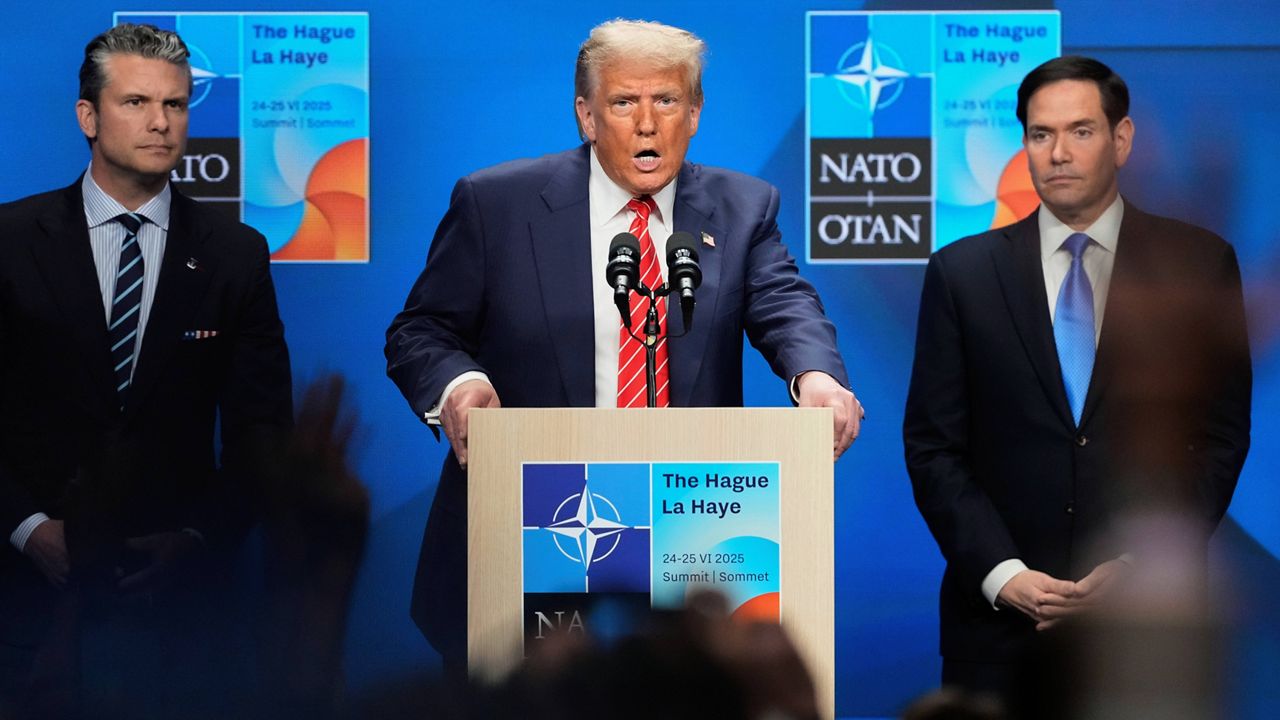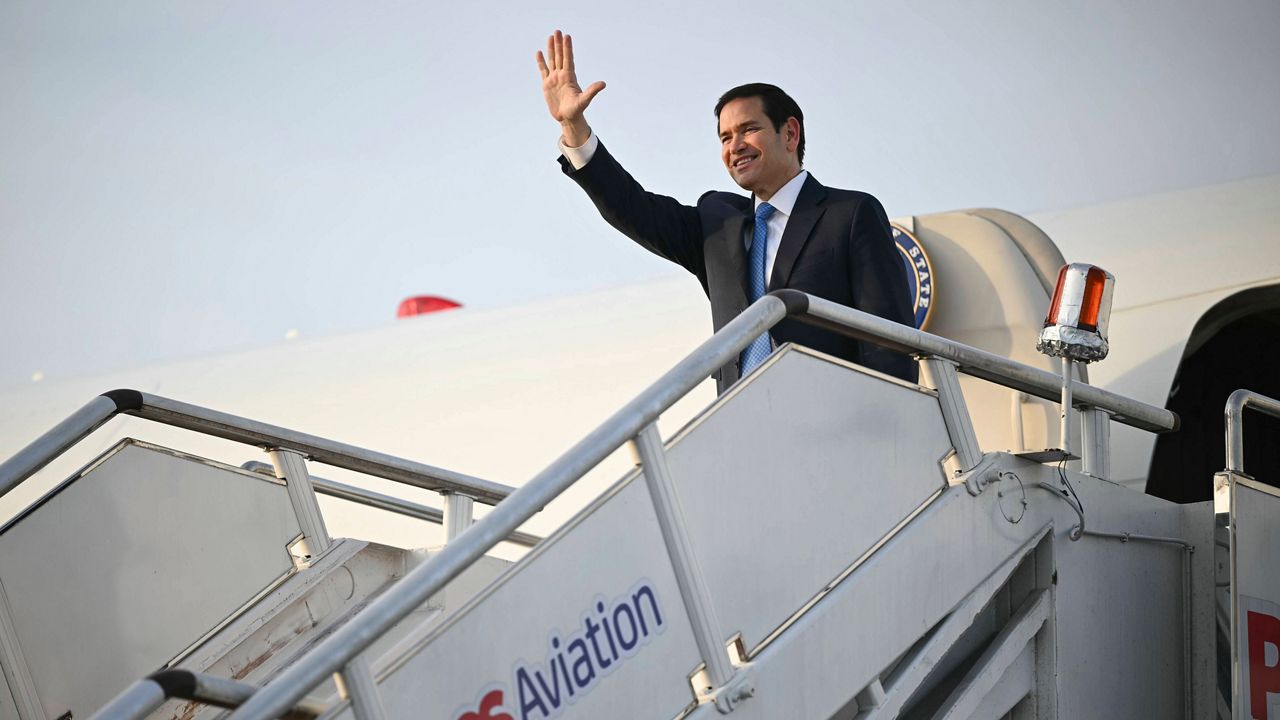WASHINGTON — Secretary of State Marco Rubio called on China to step in to urge Iran not to block the Strait of Hormuz — a trade passage that is crucial for the transit of oil around the world — in response to U.S. strikes against three Iranian nuclear sites over the weekend.
In an appearance on Fox News the morning after the strikes on Sunday, Rubio said he is encouraging Chinese officials to call the Iranians to push for the route to stay open, noting Beijing’s dependence on oil that passes through it. He went on to refer to a potential decision by Tehran to close it as a “terrible mistake.”
“It’s economic suicide for them if they do it and we retain options to deal with that,” Rubio said. “But other countries should be looking at that as well.”
The secretary noted the blockage of the passage would impact other countries more than the U.S. but stressed the move would trigger a response regardless.
“It would be, I think, a massive escalation that would merit a response not just by us but from others,” he added.
The globe is bracing for the poential impacts of President Donald Trump’s decision to enter the U.S. into the conflict between Israel and Iran, which has included fears of the posibility of higher oil and gas prices amid disruptions in the region. On Monday, Iran launched missiles at a major air base in Qatar, but the U.S. reported no casualties and said the damage was limited.
Trump referrenced the uneasiness in a post on Truth Social on Monday morning, writing "EVERYONE, KEEP OIL PRICES DOWN."
"I’M WATCHING! YOU’RE PLAYING RIGHT INTO THE HANDS OF THE ENEMY. DON’T DO IT!" his post continued.
He also called on the U.S. Department of Energy to "DRILL, BABY, DRILL!!!"
The Strait of Hormuz, which connects the Persian Gulf with the Gulf of Oman and the Arabian Sea, is one of the world’s most vital oil chokepoints, according to the Energy Information Administration, or EIA. Last year, an average of 20 million barrels of oil a day passed through the route, accounting for about 20% of the world’s petroleum liquids consumption, EIA data found. The northern part of the strait borders Iran.
Iran ranked fourth among the Organization of the Petroleum Exporting Countries, or OPEC, in crude oil production in 2023, according to the EIA.
China, which maintains a relationship with Tehran, along with other Asian countries are particularly reliant on oil that passes through the strait, the EIA notes. Nearly 70% of crude oil that flowed through the route in 2024 went to China, India, Japan, and South Korea.
As of 2023, only about 8% of America’s imports of crude oil and condensate, on the other hand, came from Persian Gulf countries through the Strait of Hormuz.
Iran has increased exports of crude oil to China in recent years, the EIA finds, growing by about nearly 870 million barrels per day between 2020 and 2023.





